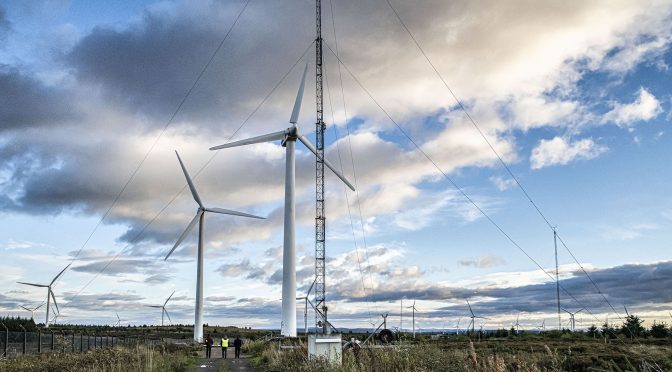Enel Green Power has launched a partnership with the startup ACT Blade to develop a new type of innovative wind turbine made of fabric, capable of generating more energy, reducing costs and making it easier to recycle its component materials.
If renewable sources are now fully competitive, it is thanks in part to materials science, which has made it possible to reduce production costs and improve the efficiency of wind and solar power plants.
Through its Open Innovability®model, Enel is focusing its attention on the continuous development of technological innovation, looking at innovative ideas wherever they may originate, inside or outside the Group, to then experiment with them and potentially put them into practice. In particular, we offer startups the opportunity to collaborate with us and benefit from our experience, expertise and resources in order to test and fine-tune their products in genuine use case scenarios and speed up their entry into the market.
An example of this approach is the agreement that Enel Green Power has signed with the Scottish startup ACT Blade, which specializes in the production of innovative wind turbines covered with a special technical fabric, based on the principles adopted for the sails used by boats competing in the America’s Cup.
Sabrina Malpede, co-founder and CEO of ACT Blade, had the foresight to apply the skills she acquired in the field of competitive sailing, where she achieved impressive results, to the sector of wind power. The sailboats that used her technology, in fact, won numerous medals in various competitions.
This technology has great potential for the wind power industry as well, because it could bring significant benefits in both economic and environmental terms. First of all, the turbine blades are lighter because they have a slender supporting structure made of composite material that is completely covered with the technical fabric. The new blades with the same weight as conventional ones are longer and therefore ensure an increased production of electricity. In addition, the costs are lower thanks to other features, such as a structure that is composed of fewer materials in relation to its length, as well as modular production processes that are simpler and more streamlined, leading to expected savings of up to 17%.
“In July we achieved an important milestone with the installation of three blades, ACT27s, on a wind turbine at Myres Hill (Glasgow, UK) – not only demonstrating the structural integrity of ACT blades, but also their operational performance. Now we’re working on developing our first blade- product, so the collaboration with Enel Green Power is of great value to us, ensuring we keep our focus on the end user, which is fundamental in this phase of development and in terms of the future commercialization of our technology as well,” commented Malpede.
Finally, a particularly relevant aspect concerns the circular economy. The ACT Blade rotor blades are made of a reusable fabric and from elements that are more easily separable compared with conventional blades, so they can be recovered more easily once the blades are dismantled at the end of their useful life. For all these reasons, the startup was chosen as one of the best in the G20 Innovation League, the event organized by the Italian Ministry of Foreign Affairs under Italy’s Presidency of the G20 with the aim of giving visibility to new ideas and entrepreneurial projects for a more sustainable future. In particular, ACT was awarded as one of the two best initiatives in the field of clean technologies.
ACT Blade’s technology fits perfectly with Enel’s strategy for the circular management of wind farms: maximizing the reuse and recycling of materials and components and applying a circular perspective right from the design phase. In general, the recycling of metals (which make up the majority of a wind turbine) is quite straightforward, while the composite materials used to make up the rotor blades is more complex. So this technology is an interesting option in order to make wind power even more circular and sustainable.
“It’s undeniable that wind power will play a central role in the energy transition towards energy generation that is completely renewable. With that in mind, we’re constantly looking for innovative solutions that can improve performance and sustainability, starting with the materials used and their life cycles. For this reason, ACT Blade’s technology is extremely interesting for us. We’re collaborating with ACT because we want to support the testing of their product in real environments, and accelerate the startup’s growth and market entry,” explained Nicola Rossi, Head of Innovation Global Power Generation.
Also being evaluated is the creation of manufacturing activities to implement the project at the Group’s sites.


